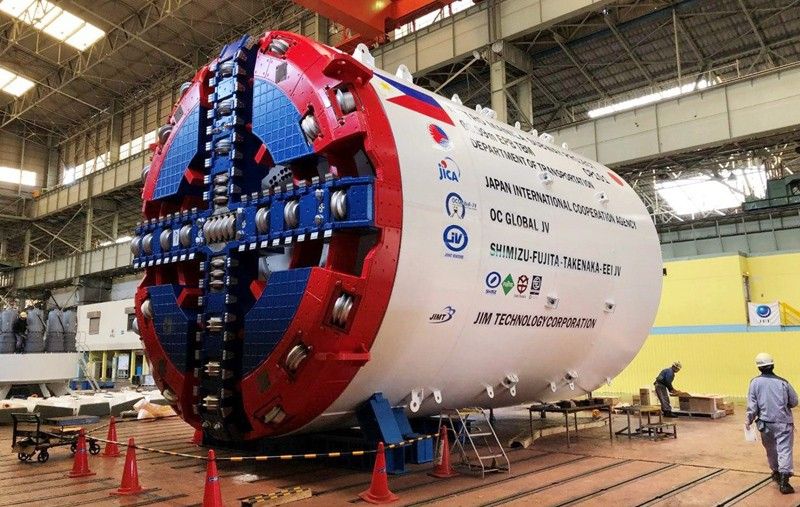Metro Manila subway works still on track — DOTr

MANILA, Philippines — The Department of Transportation (DOTr) will “dig its way” to bring into partial operability the country’s first underground rail system before the end of President Duterte’s term despite the challenges brought by the COVID-19 pandemic.
Transportation Secretary Arthur Tugade said the agency, together with its partners, is determined to complete the partial operability section of the P357-billion Metro Manila subway project by December 2021.
He said despite the impact of the pandemic, the subway project is pushing through.
Transportation Undersecretary for rails Timothy John Batan said among the challenges brought about by the pandemic on the construction of the project is the social distancing requirement.
“This is being implemented not only in the rail lines but also in the construction site. So one way to address that, following the construction guidelines that are in place from the IATF, is the requirement to add workers and expand the barracks,” he said.
“Another thing we did, with the entry of the foreign nationals and imported equipment, is close coordination with the Department of Foreign Affairs and the Bureau of Immigration,” Batan said.
He said the first and second tunnel boring machines (TBMs) would be delivered to the country by January and February next year.
The two are part of the six TBMs being manufactured by JIM Technology Corp. in its factory in Tsurumi Prefecture, Japan.
The TBMs will be used to dig underground and lay the tunnels.
Batan said the six TBMs would be used for the partial operability section, but the entire 34-kilometer subway project would require 25 TBMs.
“A tunnel boring machine’s sheer size and power will not only contribute to faster tunneling and project completion, but will also significantly reduce disruption above ground during construction,” he said.
Tugade assured the public that the subway stations to be built would be flood-free as the project will be utilizing similar technologies used in the development of similar systems in Japan.
“Will there be flooding in the subway? No. The technology of our Japanese construction partners is the assurance. Their experience is the assurance,” he said.
According to Tugade, the project would generate direct employment of 9,000 and indirect jobs of between 40,000 and 50,000.
“In the upcoming construction stage, the Metro Manila Subway project is expected to generate a lot of employment and help stimulate local businesses reeling from the COVID-19 crisis. I hope it can help lead the Philippines to a possible V-shaped economic recovery, while it lays down the foundation for a more prosperous next generation,” Japanese Ambassador to the Philippines Koji Haneda said.
The DOTr in February last year broke ground for the Metro Manila subway project and likewise signed the design and build contract for its first three stations, or its partial operability section, with the joint venture of Shimizu Corp., Fujita Corp., Takenaka Civil Engineering Co. Ltd., and EEI Corp.
The Metro Manila subway project will stretch across 36-kilometers, connecting Valenzuela Depot to NAIA Terminal 3 in Pasay City and FTI.
The project aims to reduce travel time from the Valenzuela Depot to NAIA Terminal 3 to just 45 minutes, from the original one hour and 30 minutes.
It will have 15 stations, crossing seven local governments, and passing three of Metro Manila’s business districts.
The project, which is being funded by an official development assistance from Japan, is expected to be fully operational by 2026.
“We also fully understand that there is much work to be done and more challenges ahead but we assure our partners in the DOTr and the government of the Philippines that JICA is a partner you can trust to provide high-quality and innovative solutions for your country’s development goals and facilitate win-win partnerships between the Japanese and Filipino peoples,” Japan International Cooperation Agency (JICA) chief representative Eigo Azukizawa said.
- Latest
- Trending

























